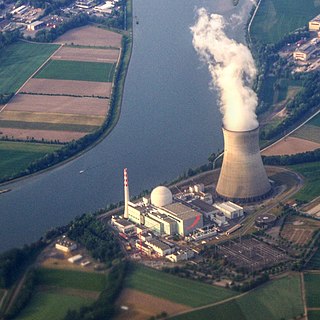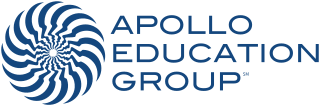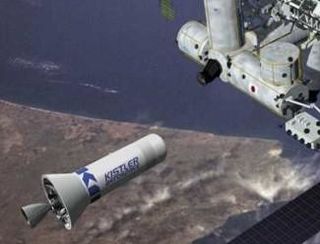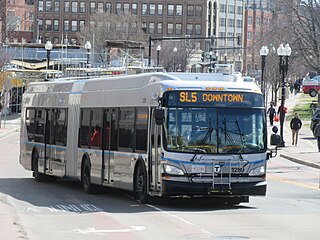
Nuclear power is the use of nuclear reactions to produce electricity. Nuclear power can be obtained from nuclear fission, nuclear decay and nuclear fusion reactions. Presently, the vast majority of electricity from nuclear power is produced by nuclear fission of uranium and plutonium in nuclear power plants. Nuclear decay processes are used in niche applications such as radioisotope thermoelectric generators in some space probes such as Voyager 2. Generating electricity from fusion power remains the focus of international research.

Transport in Norway is highly influenced by Norway's low population density, narrow shape and long coastline. Norway has old water transport traditions, but road, rail and air transport have increased in importance during the 20th century. Due to the low population density, public transport is somewhat less built out in rural areas of Norway, however public transport in, and around cities is well developed.

Iran's telecommunications industry is almost entirely state-owned, dominated by the Telecommunication Company of Iran (TCI). Fixed-line penetration in 2004 was relatively well-developed by regional standards, standing at 22 lines per 100 people, higher than Egypt with 14 and Saudi Arabia with 15, although behind the UAE with 27. Iran had more than 1 mobile phone per inhabitant by 2012.
Air Canada is the flag carrier and the largest airline of Canada, by size and passengers carried. Air Canada is headquartered in the borough of Saint-Laurent, Montreal, Quebec. The airline, founded in 1937, provides scheduled and charter air transport for passengers and cargo to 222 destinations worldwide. It is a founding member of the Star Alliance. Air Canada's major hubs are at Toronto Pearson International Airport (YYZ), Montréal–Trudeau International Airport (YUL), and Vancouver International Airport (YVR).

T-Mobile is the brand name used by some of the mobile communications subsidiaries of the German telecommunications company Deutsche Telekom AG in the Czech Republic, Poland and the United States.

Online banking, also known as internet banking, virtual banking, web banking or home banking, is a system that enables customers of a bank or other financial institution to conduct a range of financial transactions through the financial institution's website or mobile app. Since the early 2000s this has become the most common way that customers access their bank accounts.
Clearstream is a financial services company that specializes in the settlement of securities transactions and is owned by Deutsche Börse AG. It provides settlement and custody as well as other related services for securities across all asset classes. It is one of two European International central securities depositories.

The Manitoba Hydro-Electric Board, operating as Manitoba Hydro, is the electric power and natural gas utility in the province of Manitoba, Canada. Founded in 1961, it is a provincial Crown Corporation, governed by the Manitoba Hydro-Electric Board and the Manitoba Hydro Act. Today the company operates 16 interconnected generating stations. It has more than 527,000 electric power customers and more than 263,000 natural gas customers. Since most of the electrical energy is provided by hydroelectric power, the utility has low electricity rates. Stations in Northern Manitoba are connected by a HVDC system, the Nelson River Bipole, to customers in the south. The internal staff are members of the Canadian Union of Public Employees Local 998 while the outside workers are members of the International Brotherhood of Electrical Workers Local 2034.
Deposit insurance or deposit protection is a measure implemented in many countries to protect bank depositors, in full or in part, from losses caused by a bank's inability to pay its debts when due. Deposit insurance systems are one component of a financial system safety net that promotes financial stability.

Apollo Education Group, Inc. is an American corporation based in the South Phoenix area of Phoenix, Arizona, with an additional corporate office in Chicago, Illinois. It is privately-owned by a consortium of investors including The Vistria Group, LLC and funds affiliated with Apollo Global Management, LLC.

Psiphon is a free and open-source Internet censorship circumvention tool that uses a combination of secure communication and obfuscation technologies, such as a VPN, SSH, and a Web proxy. Psiphon is a centrally managed and geographically diverse network of thousands of proxy servers, using a performance-oriented, single- and multi-hop routing architecture.

Rocketplane Kistler (RpK) was a reusable launch system firm originally based in Oklahoma. It was formed in 2006 after Rocketplane Limited, Inc. acquired Kistler Aerospace. NASA announced that Rocketplane Kistler had been chosen to develop crew and cargo launch services. However, having missed financial milestones NASA terminated funding for the project. It filed for chapter 7 bankruptcy in 2010.

The National Petrochemical Company (NPC), a subsidiary to the Iranian Petroleum Ministry, is owned by the government of the Islamic Republic of Iran. It is responsible for the development and operation of the country's petrochemical sector. Founded in 1964, NPC began its activities by operating a small fertilizer plant in Shiraz.

A hybrid electric vehicle (HEV) is a type of hybrid vehicle that combines a conventional internal combustion engine (ICE) system with an electric propulsion system. The presence of the electric powertrain is intended to achieve either better fuel economy than a conventional vehicle or better performance. There is a variety of HEV types and the degree to which each functions as an electric vehicle (EV) also varies. The most common form of HEV is the hybrid electric car, although hybrid electric trucks, buses, boats, and aircraft also exist.

Nuveen is an American asset manager and wholly owned subsidiary of financial planning firm TIAA, itself known for its legacy focus on managing money for not-for-profit institutions such as universities and their employees. As a consequence of integration efforts over the last several years, Nuveen now manage the entirety of TIAA's own capital as well as all capital sourced from third parties. It is one of a limited number of non-sovereign money managers globally that have exceeded one trillion dollars in assets under management in recent years, and one of only a few that are not part of a larger organization offering retail or institutional banking at scale.

Following the Iranian Revolution, Iran's banking system was transformed to be run on an Islamic interest-free basis. As of 2010 there were seven large government-run commercial banks. As of March 2014, Iran's banking assets made up over a third of the estimated total of Islamic banking assets globally. They totaled 17,344 trillion rials, or US$523 billion at the free market exchange rate, using central bank data, according to Reuters.
Microsoft has been involved in numerous high-profile legal matters that involved litigation over the history of the company, including cases against the United States, the European Union, and competitors.

Gazit Globe is a leading global real estate company focused on the ownership, development, and management of income-producing properties for mixed use including retail, office and residential located in densely populated urban cities.
Bank Pasargad, also known as BPI, is a major Iranian bank offering retail, commercial and investment banking services. The company was established in 2005 as a part of the government's privatization of the banking system.












